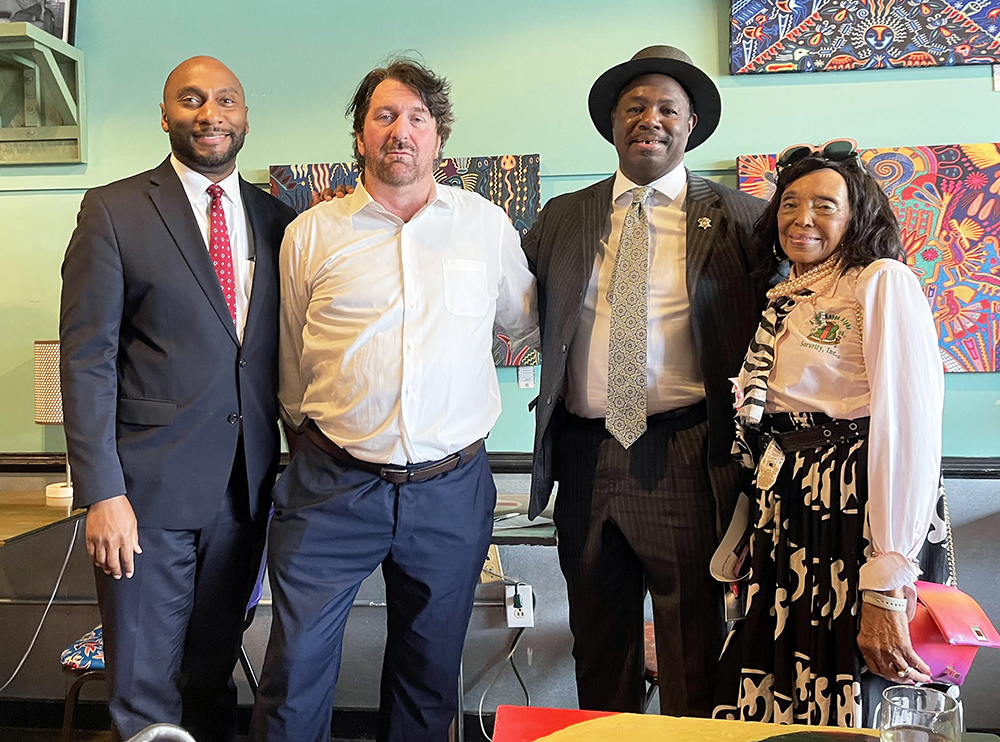Last week in this space we designated some of the most compelling races on the ballot for the August 1st election (state and federal primaries; county general election), which was scheduled to terminate this week.
There weren’t many that were truly eventful, and the same fact holds true for most of the forthcoming follow-up races on the November 5th ballot. Few horse-race scenarios, as it were. But that’s not the whole story.
Take the case of District 84 state Representative Joe Towns, for example. Towns was almost certainly due to be an easy winner in this week’s Democratic primary, in which he was opposed by one Vernell Williams. (This column was written before votes could be tabulated.) And he’ll have no Republican opponent in November. But, as Towns indicated to the attendees at a fundraiser in his honor at Otherlands Coffee Bar on Monday night, his election concerns were rather more focused this week on the outcome of a statewide ballot initiative of his sponsorship on the November ballot.
This is a constitutional amendment — one to abolish slavery in the state of Tennessee. Eyebrows may be raised at this notion. One might think that slavery surely ceased to be a reality in the state long ago, at the time of the Civil War.
For the record, this is what the Tennessee constitution has to say on the subject, as of now:
“That slavery and involuntary servitude, except as a punishment for crime, whereof the party shall have been duly convicted, are forever prohibited in this state.” (Article 1 — Declaration of Rights, Sec. 33)
Towns’ amendment would delete the words italicized above and would rewrite the amendment to read (with italics indicating substitute language):
“That slavery and involuntary servitude are forever prohibited. Nothing in this section shall prohibit an inmate from working, when the inmate has been duly convicted of a crime.”
The difference between the two versions may appear subtle, but the amended version, if passed by the state’s citizens, would eliminate the implicit license, in the original, to impose involuntary servitude on convicts as an exception to the ban on slavery.
In the amended version, there is no “but” clause. Inmate labor is to be regarded as a matter entirely separate from the issue of slavery.
Again, a subtle distinction, but one seen as crucial to Rep. Towns and his co-sponsors.
• Meanwhile, the one legislative race destined to receive the most attention this fall, both locally and statewide, is the one for District 97 state representative between Democratic challenger Jesse Huseth and Republican incumbent John Gillespie (presumed, as of this writing, to become the victorious GOP candidate over relatively unknown party rival Christina Oppenhuizen this week).
The district is largely an East Memphis one, and the camps of both candidates regard its electoral fate as relevant to the political future not only of Shelby County’s suburban rim but of mixed rural/urban communities of similar affluence statewide.
Both Gillespie and Huseth have raised formidable sums of money, and they are well-matched in most regards. Huseth is center-left; Gillespie is center-right. One trait they have in common: Neither is a glad-hander in the standard political mode; both are earnest, almost solemn in their personal demeanors, and that is but one fact among many that augurs for a close race between the two.
